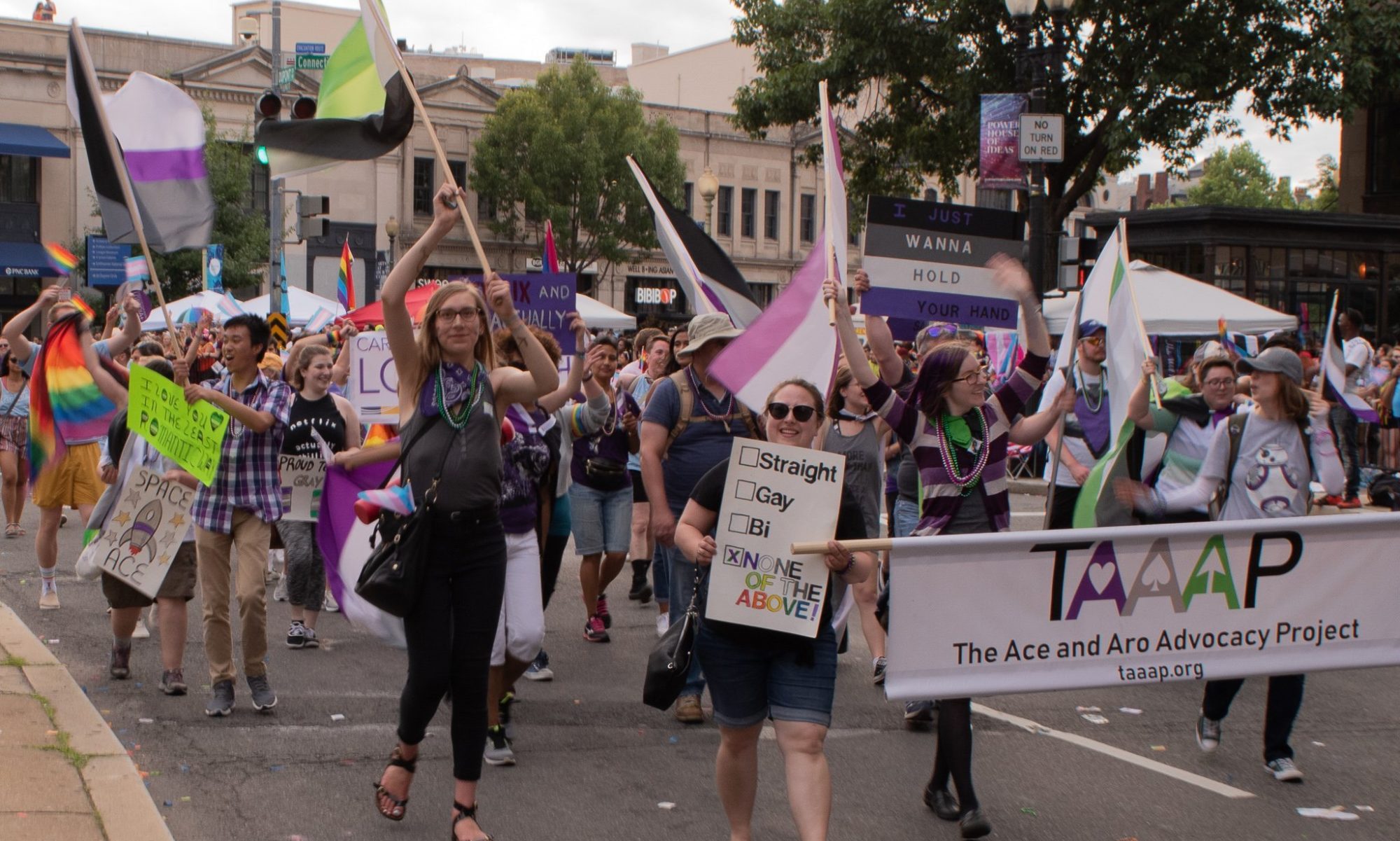Note: This statement has been edited to address the helpful feedback we’ve gotten. This is meant as a statement of TAAAP’s values. Decolonization is a long process that will never be fully completed, but members of TAAAP want to be held accountable for the ways in which we perpetuate and participate in colonial thinking and actions. We welcome further feedback and corrections.
The Ace and Aro Advocacy Project was founded in the United States, and almost all of our members, as well as the people in the communities we serve, reside in the United States or in other colonized countries. Colonialism is violence, and living as a settler in colonized countries means participating in that violence. Even as we fight to bring attention and resources to our underserved and underrepresented identities, it is essential that we respect and acknowledge the rightful caretakers of colonized lands. We must also always remember and acknowledge the history of violence against Indigenous peoples, and the violence still practiced and institutionalized in our societies today.
TAAAP is based out of Maryland, which is the traditional home of many Indigenous peoples, including, but not limited to, the Accohannock, Anacostan, Massawomeck, Manahoac, Nentego, Piscataway, Pamunkey, and Susquehannock peoples. (You can check what peoples have claim to which lands at this site: native-land.ca.) Some of these peoples are not listed on this map or acknowledged today, but we know that they still exist and wish to acknowledge them as well. Many of these peoples were driven away, were enslaved, or were killed, whether through violence or disease. Plenty of these peoples survive today. Now, around the world, Indigenous populations are more likely to live in poverty, be disenfranchised by colonial governments, and face violence than almost any other population.
While most of our members are settlers who benefit from and participate in colonialism, we are working to learn more about non-Western modes of thinking, including valuing different ways of knowing alongside the purely intellectual or scientific. These ways of knowing include mythic, experiential, and spiritual. (You can learn more at https://tapestryinstitute.org/ways-of-knowing/.) We’re starting to focus on learning about other ways that people may identify with aromantic and/or asexual communities without necessarily using that kind of categorization or labeling. Our first step in the process is gathering resources and reaching out to Indigenous activists, scholars, and people in the queer community.
We recognize that many of the concepts that we are fighting against, including sex-, amato-, and heteronormativity, are not inherent to people everywhere, but were spread with colonialism. Working against these concepts means understanding social structures, especially non-European structures, that do not center sexual relationships, romantic relationships, or the Western concept of nuclear families. We are just at the beginning of this process, and would appreciate any resources anyone can recommend. We also welcome corrections or changes from anyone.
In the meantime, in honor of Indigenous Peoples’ Month in the United States, and in honor of the start to this effort, we have donated to the Native Americans Rights Fund, narf.org, a fifty-year-old entirely Indigenous-led organization that fights to protect the rights of Native Americans all over the United States.
(Originally published 29 November 2020 at https://taaap.org/2020/11/29/decolonizing-taaap/)
